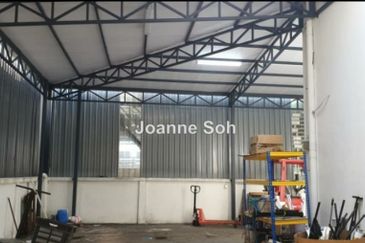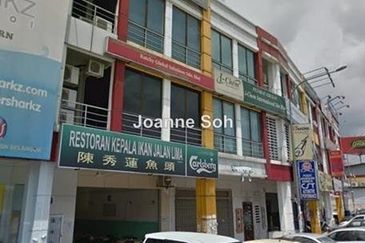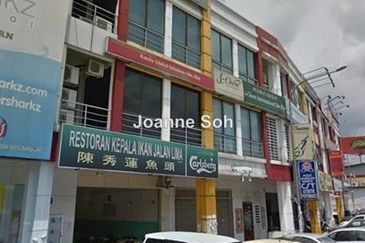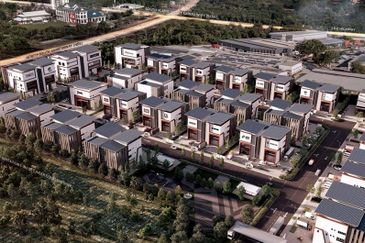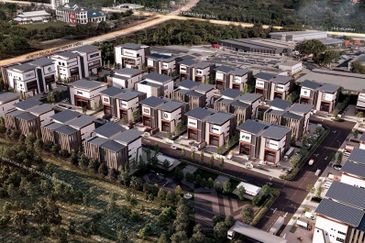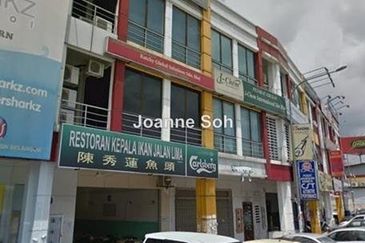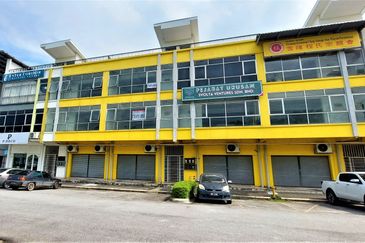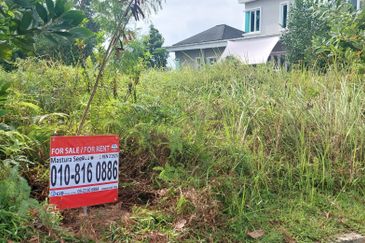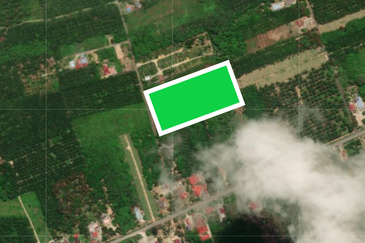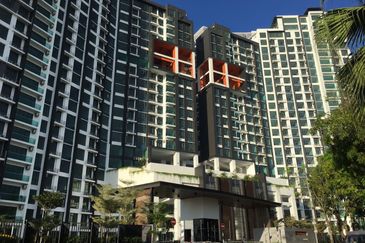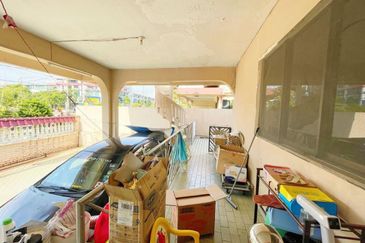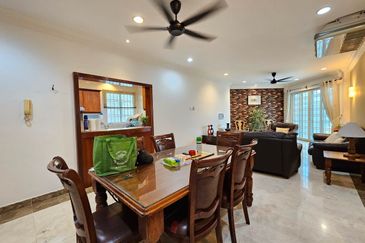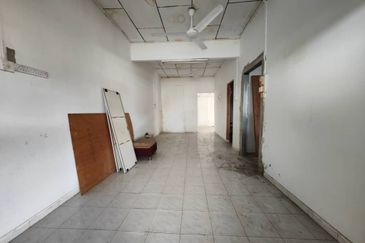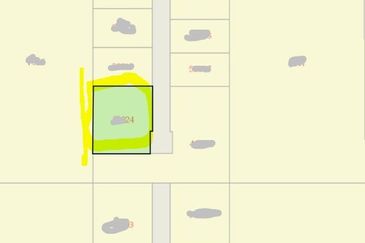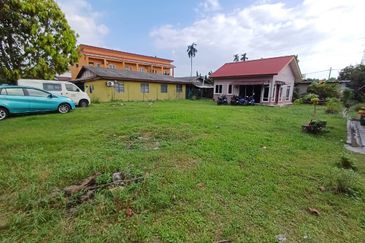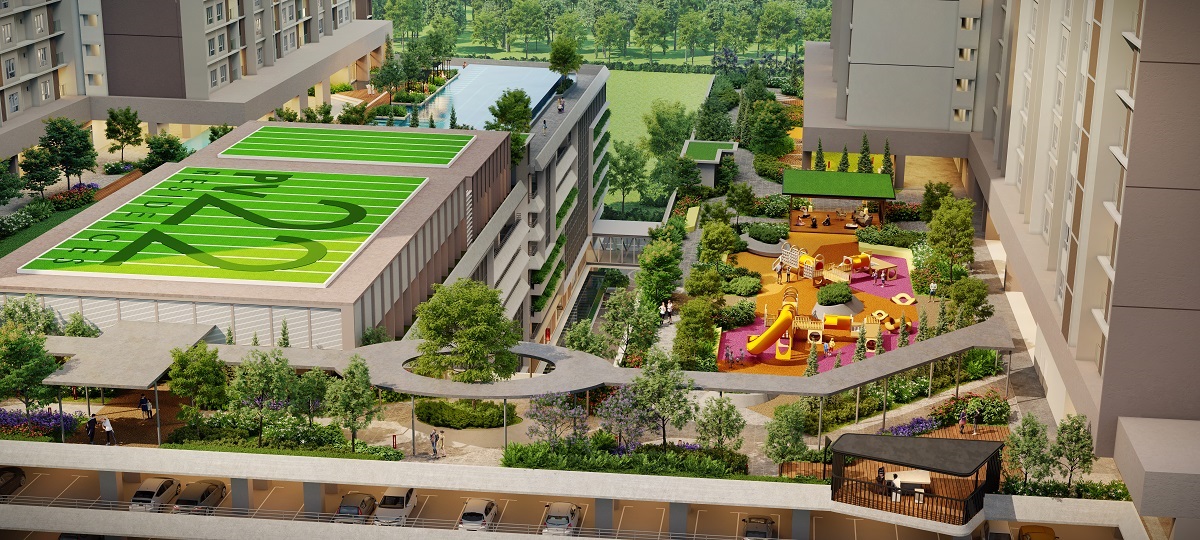SHAH ALAM (July 3): The Selangor State Development Corp (PKNS) is taking the longer route to set up a real estate investment trust (REIT) to unlock the value of its prime assets.
The state-owned entity has to balance its social obligations with profi t motives. PKNS tried to inject three properties into AmanahRaya REIT in exchange for RM270 million cash and 30% equity but the deal collapsed last December after 15 months of deliberations.
The proposal met with strong opposition from those who feared the move could jeopardise the bumiputera agenda in which PKNS buildings off er subsidised rents to bumiputera entrepreneurs.
In the interim, PKNS has established a private real estate company (PREC) to incubate some of its existing properties in the Klang Valley, which have a combined value of RM900 million. For now, the PREC’s main task is to boost the cash fl ow and yields from PKNS’ assets and streamline operations, PKNS general manager Othman Omar told Th e Edge Financial Daily in a recent interview.
Othman said PKNS has not ruled out launching a REIT or injecting ripe assets into an existing REIT in the future. He said the state development corporation had decided on the PREC route in the interim to give it more control and more time to upgrade the yields of its assets.
 |
| Othman: PKNS and the PREC have synergies to tap. Some of the real estate acquired by the PREC could eventually be used by PKNS for property development or redevelopment projects. |
“If we go straight into the REIT, we may not be able to realise the real value of the properties,” he said. PKNS cannot raise its rents to market rates as it still shoulders the social responsibility of off ering subsidised rents to bumiputera entrepreneurs.
“I suppose some of our properties are quite rent sensitive so we cannot increase the rent to market rates because there are other implications. If we park [assets] in a REIT, of course the shareholders would want to maximise the rent,” he said. Even within its social responsibility, PKNS has a fi ne line to walk.
“Take Kompleks PKNS, for example. We have people there who have been enjoying 30 years of subsidised rents. “We also have a few hundred bumiputera businessmen who are queuing up to pay full rent. So we have to weigh that and be fair,” said Othman.
The assets that will be managed by the PREC include Menara Worldwide in Bukit Bintang, Menara PKNS in Petaling Jaya, the Shah Alam Convention Centre and the chain of De Palma hotels. PKNS has been working over the past year to enhance the yields of its properties by relocating some tenants and bringing in “quality” tenants, said Othman.
The endeavour has borne fruit with yields improving to the current range of between 3% and 8% from the earlier returns, which were negative to low single digits, he revealed. Apart from managing PKNS’ assets, the PREC is also on acquisition trail for undervalued properties with good yields. Othman said the PREC is in the process of evaluating several properties, including hotels and commercial buildings, but declined to name the target assets.
The PREC will also capitalise on the income-generating assets to take on new borrowings to finance its asset acquisitions, he said. “These buildings are already paid for, so we want to gear up and own a few more, but we have to be very selective.
The buildings have to come with large upside potential.” By starting the PREC, PKNS will be able to focus on its hefty pipeline of property development projects that have a combined gross development value of RM20 billion. PKNS and PREC’s operations will also have synergies to tap. Some of the real estate acquired by the PREC could eventually be used by PKNS for property development or redevelopment projects, Othman said.
The PREC could also pave the way for future collaborations with other asset owners. PKNS currently wholly owns the PREC but Othman said the state-owned corporation might later invite other asset owners to participate. If the PREC’s stable of properties grows, Othman said it can reorganise itself into more sector-specific PRECs such as for office, hospitality or retail.
Although the REIT plans are on hold for the moment, PKNS has got the wheels in motion for it to reap better returns from its properties, which are located in prime business districts around the Klang Valley.
This story appeared in The Edge Financial Daily on July 3, 2012.
TOP PICKS BY EDGEPROP

Anjung Hijau (Greenfield Apartment)
Bukit Jalil, Kuala Lumpur

Taman Perindustrian Puchong
Puchong, Selangor

Taman Perindustrian Puchong
Puchong, Selangor

Yayasan FAS Business Avenue
Petaling Jaya, Selangor

